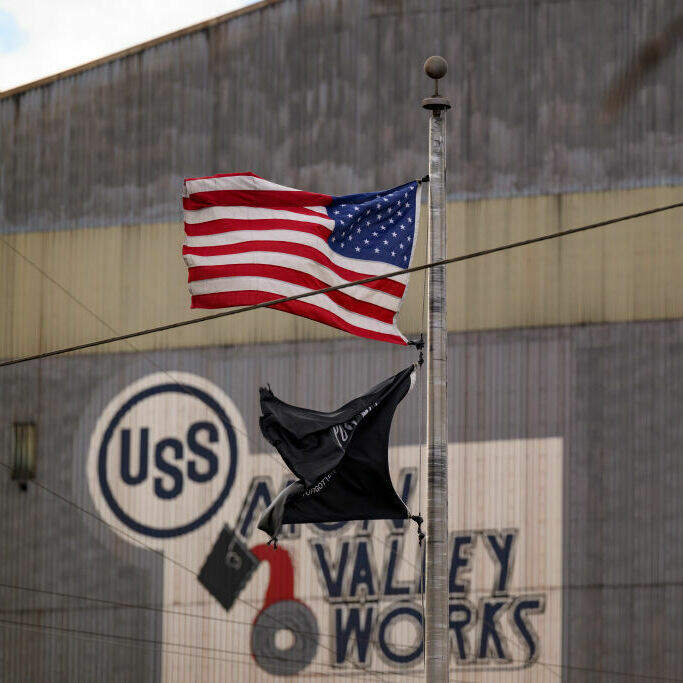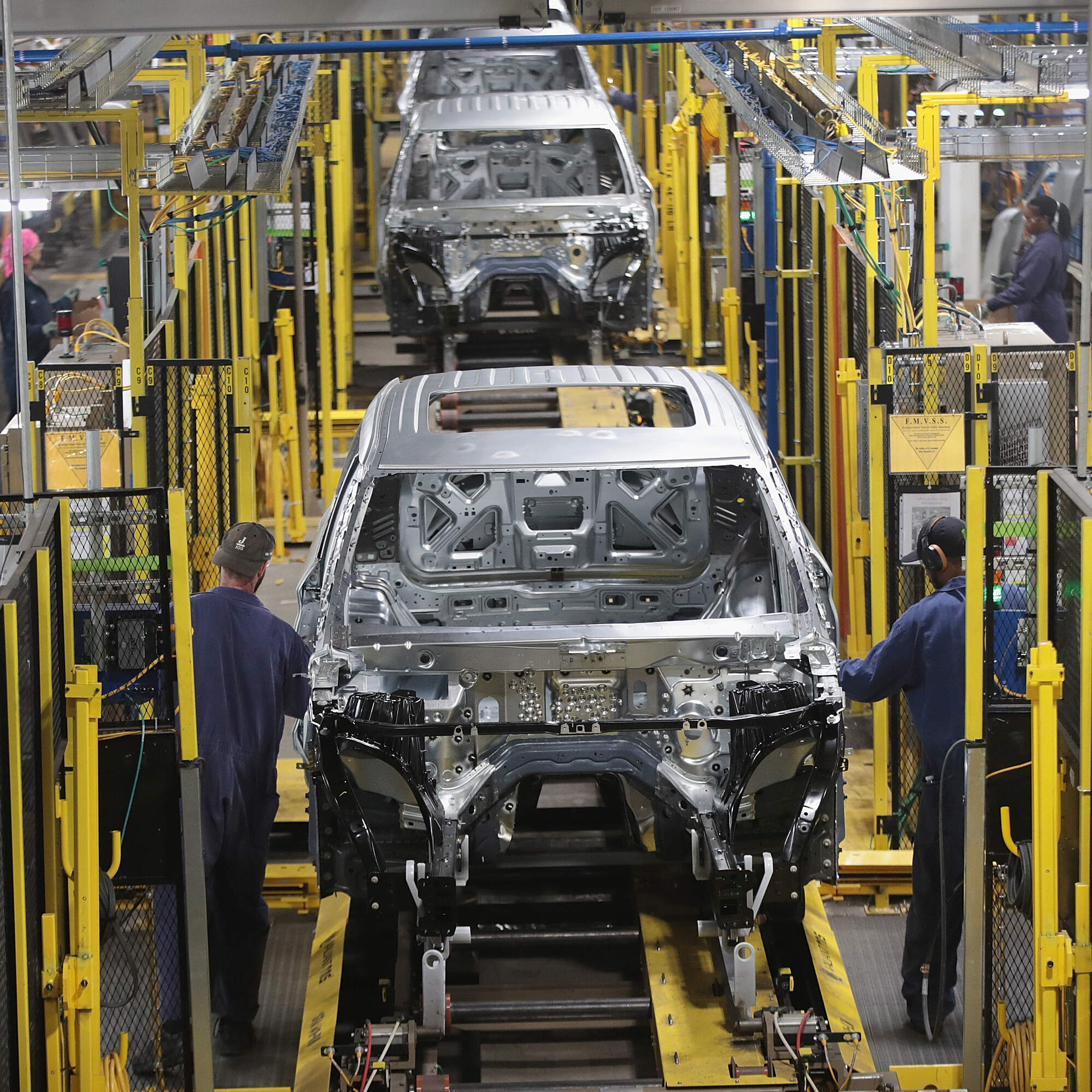Planet Money

Wanna see a trick? Give us any topic and we can tie it back to the economy. At Planet Money, we explore the forces that shape our lives and bring you along for the ride. Don't just understand the economy – understand the world.
Wanna go deeper? Subscribe to Planet Money+ and get sponsor-free episodes of Planet Money, The Indicator, and Planet Money Summer School. Plus access to bonus content. It's a new way to support the show you love. Learn more at plus.npr.org/planetmoney
Website : https://www.npr.org/podcasts/510289/planet-money
IPFS Feed : https://ipfspodcasting.com/RSS/263/PlanetMoney.xml
Last Episode : August 22, 2025 11:16pm
Last Scanned : 1.3 hours ago

Episodes
Episodes currently hosted on IPFS.
 Buy discount Ozempic here now click this link
Buy discount Ozempic here now click this linkIn the past couple years, demand has gone wild for drugs like Ozempic – and its cousins, Zepbound, Wegovy, and Mounjaro. For people who had never been able to lose weight before, suddenly the numbers on the scale were plummeting. And everybody wanted to get their hands on them. Now, in most industries, if a product goes viral like this, it’s a golden ticket. And thanks to government-granted monopolies designed to encourage innovation, the big drug companies behind these blockbuster injections are currently the only ones allowed to make them.In theory, anyway. But, what if that explosive demand backfired, opening the door to legal knock-offs? You’ve maybe seen them - copycats advertised as the same thing as Ozempic. So, what’s the difference? And just how legal are they? On today’s show - a drug that’s changing peoples lives is also challenging the traditional way we buy and sell medicine.This episode was hosted by Sydney Lupkin and Jeff Guo. It was produced by James Sneed. It was edited by Marianne McCune, fact-checked by Sierra Juarez, and engineered by Gilly Moon and Debbie Daughtry. Alex Goldmark is Planet Money’s executive producer.Listen free at these links: Apple Podcasts, Spotify, the NPR app or anywhere you get podcasts.Find more Planet Money: Facebook / Instagram / TikTok / Our weekly Newsletter.Help support Planet Money and hear our bonus episodes by subscribing to Planet Money+ in Apple Podcasts or at plus.npr.org/planetmoney.Music: Source Audio - “Subtly Silly Thug,” “Got The Moves,” and “Vive le Punk”Learn more about sponsor message choices: podcastchoices.com/adchoicesNPR Privacy Policy
Published Friday
 Summer School 7: Trade blocks and blockages
Summer School 7: Trade blocks and blockagesTariffs are the favorite tool of our current president, but there are lots of other ways that governments insert themselves into the free exchange of goods and services. Some of these trade barriers are so insidious and have been going on for so long that it may surprise you that they even exist. We bring you the classic story of what happens when you try to protect an American industry and end up hurting another American industry. Well intentioned plans turn into trade barriers that make our lives more expensive. Check out our Summer School video cheat sheet TikTok. Help support Planet Money and hear our bonus episodes by subscribing to Planet Money+ in Apple Podcasts or at plus.npr.org/planetmoney. Always free at these links: Apple Podcasts, Spotify, the NPR app or anywhere you get podcasts. Find more Planet Money: Facebook / Instagram / TikTok / Our weekly Newsletter. The series is hosted by Robert Smith and produced by Eric Mennel. Our project manager is Devin Mellor. This episode was edited by Planet Money Executive Producer Alex Goldmark and fact-checked by Emily Crawford. Learn more about sponsor message choices: podcastchoices.com/adchoicesNPR Privacy Policy
Published Wednesday
 When our inflation infeelings don’t match the CPI
When our inflation infeelings don’t match the CPIFor most Americans, we just lived through the highest period of inflation in our lives. And we are reminded of this every time we go grocery shopping. All over TikTok, tons of people have posted videos of how little they got for… $20. $40. $100. Most upsetting to us: an $8 box of Cinnamon Toast Crunch.Food prices are almost 30% higher than they were five years ago. It’s bad. And those new, higher prices aren’t going away.At the same time, prices are no longer inflating at a wild pace. For the last two years, the rate of inflation has slowed way down. And yet, our fears or feelings that things will spiral out of control again? Those have not slowed down.This mismatch has been giving us all the... feelings. Inflation feelings. Infeelings. On our latest show: we sort through our infeeltions. We talk to the economists who have studied us. We learn why our personal inflation calculators don’t always match the professional ones.Listen free at these links: Apple Podcasts, Spotify, the NPR app or anywhere you get podcasts.Find more Planet Money: Facebook / Instagram / TikTok / Our weekly Newsletter.Support Planet Money, get bonus episodes and sponsor-free listening and now Summer School episodes one week early by subscribing to Planet Money+ in Apple Podcasts or at plus.npr.org/planetmoney.Learn more about sponsor message choices: podcastchoices.com/adchoicesNPR Privacy Policy
Published 08/15
 Summer School 6: When the markets need a designer
Summer School 6: When the markets need a designerIn economics, a market is a place (even virtual) where buyers and sellers meet to exchange goods or services. Economists love markets. It's like all of our supply and demand graphs have come to life. Almost everything you buy goes through some sort of marketplace—your cup of coffee came from trading in the bean markets. Your spouse might have come from the dating marketplace on the apps. Even kids will tell you one Snickers is worth at least two Twix.But sometimes, as we'll see today, markets can go terribly wrong; greed can run out of control; lives can be at risk. That's when the government often steps in and gives the market a little nudge to work better. Today's episode: Market Design.The series is hosted by Robert Smith and produced by Eric Mennel. Our project manager is Devin Mellor. This episode was edited by Planet Money Executive Producer Alex Goldmark and fact-checked by Emily Crawford. Help support Planet Money and hear our bonus episodes by subscribing to Planet Money+ in Apple Podcasts or at plus.npr.org/planetmoney.Always free at these links: Apple Podcasts, Spotify, the NPR app or anywhere you get podcasts.Find more Planet Money: Facebook / Instagram / TikTok / Our weekly Newsletter.Learn more about sponsor message choices: podcastchoices.com/adchoicesNPR Privacy Policy
Published 08/13
 What happens when governments cook the books
What happens when governments cook the booksAfter President Trump fired the head of the Bureau of Labor Statistics, economists and statisticians across the board were horrified. Because the firing raises the spectre of potential manipulation – and it raises the worry that, in the future, the numbers won't be as trustworthy.So: we looked at two countries that have some experience with data manipulation. To ask what happens when governments get tempted to cook the books. And...once they cook the books... how hard is it to UN-cook them?It's two statistical historical cautionary tales. First, we learn how Argentina tried to mask its true inflation rate, and how that effort backfired. Then, we hear about the difficult process of cleaning up the post-cooked-book mess, in Greece. For more: - Can we just change how we measure GDP? - The price of lettuce in Brooklyn - What really goes on at the Bureau of Labor Statistics (Update) - Can we still trust the monthly jobs report? (Update) - How office politics could take down Europe - The amazing shrinking economy might stop shrinkingListen free at these links: Apple Podcasts, Spotify, the NPR app or anywhere you get podcasts.Find more Planet Money: Facebook / Instagram / TikTok / Our weekly Newsletter.Support Planet Money, get bonus episodes and sponsor-free listening and now Summer School episodes one week early by subscribing to Planet Money+ in Apple Podcasts or at plus.npr.org/planetmoney.Learn more about sponsor message choices: podcastchoices.com/adchoicesNPR Privacy Policy
Published 08/09
 Summer School 5: The many ways governments influence industry
Summer School 5: The many ways governments influence industryLIVE SHOW: August 18th in Brooklyn. Tickets here. Traditional economics says the market is guided by the forces of supply and demand. Customers decide what they want to buy, and private enterprise responds to that need. So what makes government think that it's smarter than capitalism? Why offer tax breaks to Hollywood or incentives to build silicon chip factories in Arizona? Why those industries and not others? And when does the free market fail and need government to step in? Today, we discuss what happens when the government really wants to get its hands dirty and shape the direction of the economy, even decide which companies should prosper and which ones should fail, through industrial policy.The series is hosted by Robert Smith and produced by Eric Mennel. Our project manager is Devin Mellor. This episode was edited by Planet Money Executive Producer Alex Goldmark and fact-checked by Emily Crawford. Help support Planet Money and hear our bonus episodes by subscribing to Planet Money+ in Apple Podcasts or at plus.npr.org/planetmoney.Always free at these links: Apple Podcasts, Spotify, the NPR app or anywhere you get podcasts.Find more Planet Money: Facebook / Instagram / TikTok / Our weekly Newsletter.Learn more about sponsor message choices: podcastchoices.com/adchoicesNPR Privacy Policy
Published 08/06
 Summer School 4: Who are all these regulations protecting?
Summer School 4: Who are all these regulations protecting?LIVE SHOW: August 18th in Brooklyn. Tickets here. There are occasional incentives in business that make it very profitable to do bad things; maybe cheat at the game and steal other people's ideas, or cut some corners on safety. In theory, the government as referee steps in to make the rules and enforce them, and manage competition in a way that hopefully makes things better for us all. But you have to ask... When is the government protecting you and when is it protecting the already rich and powerful?We'll meet a man trying to corner the market for frozen meat, with the help of patents. And then we'll head to the salon, and ask — Should the government really require dozens of hours of training for a license to braid hair? Get tickets to our August 18th live show and graduation ceremony at The Bell House, in Brooklyn. (Planet Money+ supporters get a 10 percent discount off their tickets. Listen to the July 8th bonus episode to get the code!) The series is hosted by Robert Smith and produced by Eric Mennel. Our project manager is Devin Mellor. This episode was edited by Planet Money Executive Producer Alex Goldmark and fact-checked by Sofia Shchukina. Help support Planet Money and hear our bonus episodes by subscribing to Planet Money+ in Apple Podcasts or at plus.npr.org/planetmoney.Learn more about sponsor message choices: podcastchoices.com/adchoicesNPR Privacy Policy
Published 07/30
 The President's Golden Share in U.S. Steel
The President's Golden Share in U.S. SteelLIVE SHOW ALERT: August 18th, NYC. Get your tickets here. When news broke that a Japanese company, Nippon Steel, was buying the storied American steel company U.S. Steel, it was still 2023, just before an election. And right away, politicians from both sides of the aisle came out forcefully against the deal, saying the company should remain American. Before leaving office, President Biden even blocked the sale. But in a dramatic twist a few weeks ago, President Trump approved it. With a caveat: the U.S. would get what Trump called 'a golden share' in U.S. Steel.On our latest show: what even is a "golden share"? When has it been used before, and why? And, could deals like this be a good way to get foreign investment in American manufacturing...or is it government overreach? Related episodes:- When Uncle Sam owned banks and factories- How Big Steel in the U.S. fellThis episode was produced by Willa Rubin and edited by Marianne McCune. Research help from Emily Crawford and Emma Peaslee. It was fact-checked by Sierra Juarez and engineered by Robert Rodriguez. Alex Goldmark is our executive producer.Support Planet Money, get bonus episodes, sponsor-free listening and now Summer School episodes one week early by subscribing to Planet Money+ in Apple Podcasts or at plus.npr.org/planetmoney.Listen free at these links: Apple Podcasts, Spotify, the NPR app or anywhere you get podcasts.Find more Planet Money: Facebook / Instagram / TikTok / Our weekly Newsletter.Learn more about sponsor message choices: podcastchoices.com/adchoicesNPR Privacy Policy
Published 07/25
 Summer School 3: How government decides what to spend our money on
Summer School 3: How government decides what to spend our money onAlthough it seems like the government can spend an endless amount of money, it cannot actually do all the things it wants to do. So the big question in this week's lesson is: How do we decide? Why does the government spend so much money on some things and not on others? And honestly, is there any limit?Get tickets to our August 18th live show and graduation ceremony at The Bell House, in Brooklyn. (Planet Money+ supporters get a 10 percent discount off their tickets. Listen to the July 8th bonus episode to get the discount code!)The series is hosted by Robert Smith and produced by Eric Mennel. Our project manager is Devin Mellor. This episode was edited by Planet Money Executive Producer Alex Goldmark and fact-checked by Emily Crawford.Help support Planet Money and hear our bonus episodes by subscribing to Planet Money+ in Apple Podcasts or at plus.npr.org/planetmoney.Always free at these links: Apple Podcasts, Spotify, the NPR app or anywhere you get podcasts.Find more Planet Money: Facebook / Instagram / TikTok / Our weekly Newsletter.Learn more about sponsor message choices: podcastchoices.com/adchoicesNPR Privacy Policy
Published 07/23
 Why are we so obsessed with manufacturing?
Why are we so obsessed with manufacturing?It seems like politicians cannot agree on a lot. But many seem to agree on... manufacturing. Leaders of both political parties have been working to try and make the U.S. a manufacturing powerhouse again.On today's show, what is so special about manufacturing? Is it particularly important for the economy? And if manufacturing jobs are so great, then why have companies been struggling to fill the manufacturing jobs we already have?For more on manufacturing in the U.S: - Made in America, an episode about what manufacturing work in the U.S. can be like for garment workers and how much they're paid to make each piece of clothing "made in the U.S." - Why aren't Americans filling the manufacturing jobs we already have? - What makes manufacturing jobs special? The answer could help rebuild the middle class - Can bringing back manufacturing help the heartland catch up with 'superstar' cities? - And, for more, check out the Planet Money newsletter's manufacturing series at npr.org/manufacturing. Find more Planet Money: Facebook / Instagram / TikTok / Our weekly Newsletter.Listen free at these links: Apple Podcasts, Spotify, the NPR app or anywhere you get podcasts.Support Planet Money, get bonus episodes, sponsor-free listening, and now early access to new episodes of Summer School by signing up for Planet Money+ in Apple Podcasts or at plus.npr.org/planetmoney.Learn more about sponsor message choices: podcastchoices.com/adchoicesNPR Privacy Policy
Published 07/18
Congress has voted to eliminate government funding for public media
Act now to ensure public media remains free and accessible to all. Your donation will help this essential American service survive and thrive. Visit donate.npr.org now.Learn more about sponsor message choices: podcastchoices.com/adchoicesNPR Privacy Policy
Published 07/18
 Summer School 2: How taxes change behavior and the economy
Summer School 2: How taxes change behavior and the economyWe all know the government uses taxes to pay for things. But what about using taxes to control behavior? This week on Summer School, Professor Darrick Hamilton of The New School, helps us explore the true power of the tax code. Can taxes help lift people out of poverty? What about saving the planet?Get tickets to our August 18th live show and graduation ceremony at The Bell House, in Brooklyn. (Planet Money+ supporters get a 10 percent discount off their tickets. Listen to the July 8th bonus episode to get the discount code!)The series is hosted by Robert Smith and produced by Eric Mennel. Our project manager is Devin Mellor. This episode was edited by Planet Money Executive Producer Alex Goldmark and fact-checked by Emily Crawford and Sierra Juarez. Engineering by Robert Rodriguez.Always free at these links: Apple Podcasts, Spotify, the NPR app or anywhere you get podcasts.Find more Planet Money: Facebook / Instagram / TikTok / Our weekly Newsletter.Help support Planet Money and hear our bonus episodes by subscribing to Planet Money+ in Apple Podcasts or at plus.npr.org/planetmoney.Learn more about sponsor message choices: podcastchoices.com/adchoicesNPR Privacy Policy
Published 07/16